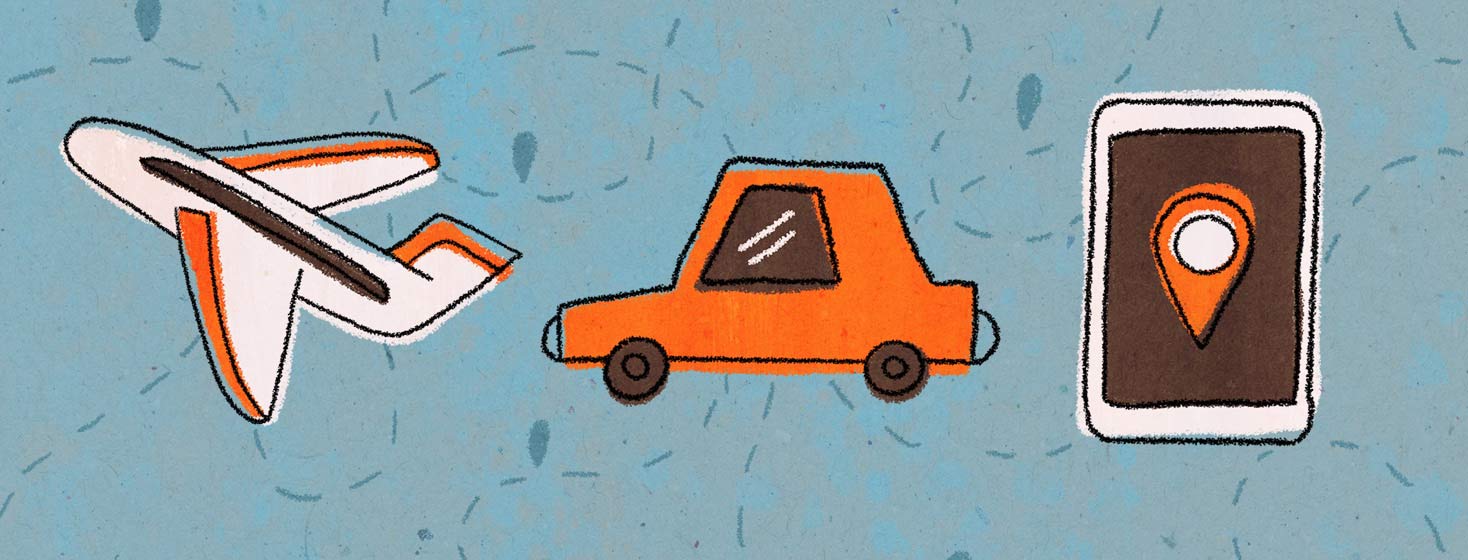Traveling with Alzheimer's
Traveling with a loved one with Alzheimer's can be frustrating for everyone. Planning is key in helping to make trips tolerable. Pack your patience.
Traveling with Alzheimer's
Keep in mind that you are traveling with someone who isn't comfortable with change or new experiences. Try to think through all the scenarios that might impact you along the way.
By car
If traveling by car think of things like the length of the trip, time of day or night you are traveling.
Can your loved one sleep in a car? If you turn the radio on in the car will it confuse them? Plan rest stops during times when restaurants, welcome centers, or gas stations are not real busy. Bring snacks they like. Be sure the temperature is comfortable in the car. Bring their favorite blanket or pillow. Having another person with you when traveling can help reduce the stress and perhaps alleviate tensions in the car.
Be mindful that you are traveling with someone with special needs. Don't stop unnecessarily at random places. Traveling with someone with dementia should be more about getting to a destination rather than sightseeing at every stop. Getting in and out of the car can be confusing and they may not want to get back in the car after stopping.
If you are traveling with someone in the early stages of Alzheimer's have a written plan of where you are going, when you will arrive, and all the details for your trip. Your loved one can then go back and look at the itinerary instead of asking you over and over where they are going. Cross things off after you have done them so they know what is left to do on the trip.
Traveling by plane
If traveling by plane, try to control as much as you can.
Be sure everyone is dressed comfortably. Arrange for a wheelchair or assistance to transport you to the gate. The smoother the transition from the check-in area to the gate the better it is. If you know you will have a long wait at the gate, try to find a quiet area. This might be an airline club room or the corner of a restaurant.
Try to fly at nonpeak times so the airport won't be as busy as a morning rush. Ask for extra time when boarding the plane. Don't hesitate to explain to the flight attendant that you are traveling with someone who might need some more attention. This makes it easier than if there is a problem mid-flight and you have to explain things. Bring along some earplugs if the noise in the airport or plane is too loud. Wait until everyone has deplaned. Take your time getting out of the aircraft.
Be sure that you have secured transportation to the baggage claim area. Arrange your transportation ahead of time to your destination so you don't have a long wait.
Be sure your loved one has some form of identification on them and a phone number to reach you in case they wander off in a busy airport.
Traveling can be tough
Traveling is hard enough right now, but by doing some planning ahead of time, you can make the trip more tolerable for everyone. Want to hear more travel tips from the Alzheimer's community? Search our forums.
Community Poll
Have you had difficulty keeping your loved one hydrated?

Join the conversation